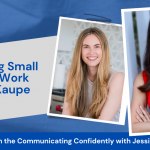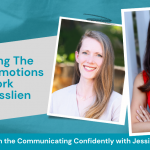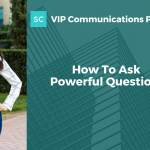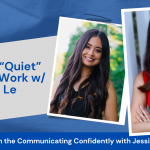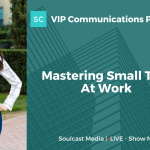How To Hold An Effective Job Interview
 You want to hire the right candidate for the job, and the interview process is part of how you find that person. But communicating well isn’t just the candidate’s job. It’s yours too! Effective communications matters all the time.
You want to hire the right candidate for the job, and the interview process is part of how you find that person. But communicating well isn’t just the candidate’s job. It’s yours too! Effective communications matters all the time.
There are several ways that you as the employer can make sure all of your interviews are productive and help move you closer to finding that perfect candidate for the job.
1. Before The Interview
Within every interview, there is a list of questions that are asked between both parties. As the person conducting the interview, you will want to make sure that you are asking the right questions. You also want to be very clear. Before the interview, make a list of questions that you would like to ask.
What are the right questions? There are several factors to consider for context:
- How much time do you have for the interview? If you are conducting a lengthy interview, you will have more time for the “get to know you” type of questions before you enter the experience-type questions. This is also crucial for as ‘small talk’ is how you can forge a deeper connection. You are part of the company’s brand!
- Is this the first, second, or third interview? Depending on what your interview process is like, you may interview a candidate more than once. If this is the case you will want to change your questions based on which interview it is.
- Where is the interview taking place?
- What type of job is this? Are you interviewing someone for a remote position? Will this person be reporting to you?
- Will anyone else be present during the interview? If so, you will want to meet ahead of time to make sure you aren’t asking the same questions.
Remember all of these scenarios will shape the type of questions you will need to ask.
2. Types of Questions
There are many different types of questions that you can ask during an interview.
The interview should be conversational, not confrontational.
The person you are interviewing may be a little nervous, so it is always a good idea to ask simple “get to know you” type of questions to break the ice. We mentioned the importance of ‘small talk’ earlier and these types of questions can ease the nerves of the person being interviewed and hopefully bring the energy up. Remember: they should enjoy talking to you as much as you should enjoy talking to them. Communications is a two-way street.
If a fantastic candidate walks away from a bad interaction with you, you may lose out on the opportunity to hire someone who can really make a difference for the company.
This means, be sure to include several open-ended questions so that you give the candidate the opportunity to expand on their skills, experience, work history, and more! Also, be mindful of your tone of voice.
Sometimes your candidates are prescreened before you meet with them by another team member or your Human Resources department. Making sure you are all on the same page is important.
3. Know Your Candidate
 Nothing feels worse than walking into an interview only to realize the person interviewing doesn’t know anything about you – and hasn’t even read your resume.
Nothing feels worse than walking into an interview only to realize the person interviewing doesn’t know anything about you – and hasn’t even read your resume.
Don’t be that person!
Most resumes are only one page long, so before the interview begins, look over their resume and familiarize yourself with it.
Of course, it is okay to have their resume at the ready during the interview, but remember you are the one hiring, so you should show that you are organized and that you take this interview seriously. Impressions are always being made!
You can also do a quick Google search of the candidate. Find their profiles on LinkedIn, Facebook, or Instagram. There are personal tidbits you can use to form ice-breaker questions.
Just remember not to get too personal – keep it light and professional at all times!
4. Ending The Interview
Sometimes during an interview, you may have a hunch that this candidate may not be the best fit for the company. Or perhaps you’ve simply run out of questions and time.
A simple way to end the interview without looking like you’re doing it frantically, or that you don’t know what else to say is to explain the interview process to the candidate.
Close the conversation by explaining the next steps: when they’ll hear back, what future steps may look like or how they’ll get notified.
Even if you don’t plan on hiring the person, being clear in your communications is always a best practice! You also never know if you’ll run into the other person again!
Remember, as much as a candidate is preparing for an interview, you should also think about how you’re communicating so you show the best version of yourself and the company.
__
Whenever you’re ready, there are 3 ways we can help you:
- Discover your communications style so you know where to start. Over 4,000 people have found theirs here.
- Attend our monthly communication workshop to build communications confidence (new topics: public speaking, advocating for yourself, building credibility, etc) here.
- Get your brand in front of 43k+ people by sponsoring our newsletter or Soulcast Media | LIVE LinkedIn events [contact: hello@soulcastmedia.com]







